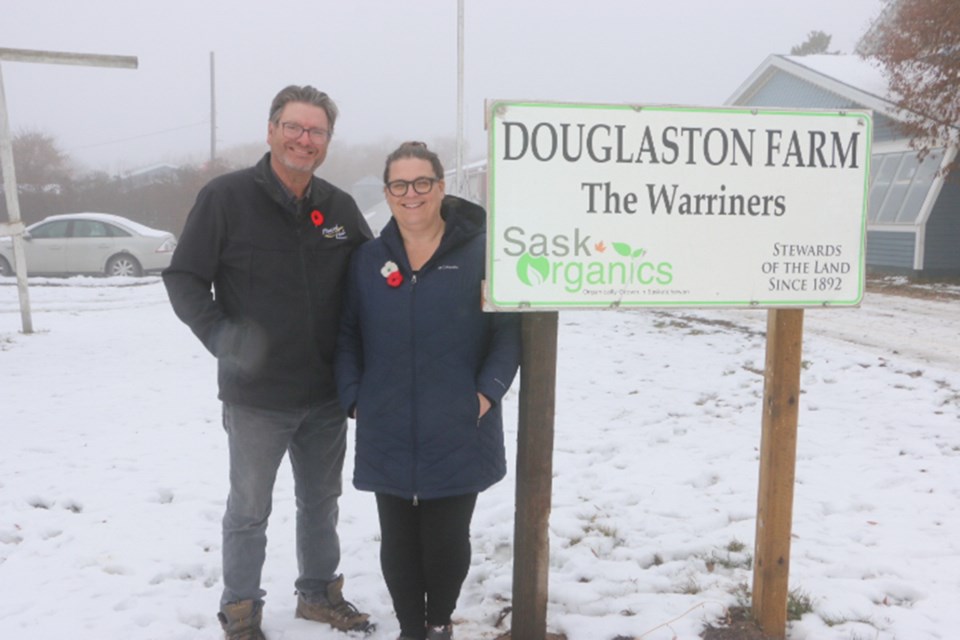ALAMEDA - Foster Warriner has been a farmer for over 45 years. His first 20 years were spent in organic farming.
In the 1990s, the profit margin for grain was pretty narrow, so Foster and his wife Anita talked about purchasing more land or the possibility of becoming organic farmers with the land they had.
Anita was all for becoming an organic operation, as she loved the idea of going greener in the future.
With their 2,000 acres located near Alameda, the work began to turn the conventional farm into a certified organic outfit.
In 1993, the process began. No more sprays or chemicals would be used to control weeds so the land could become clean once again.
It takes three to four years for the soil to return to its natural state. Once this happens, organic crops might be planted.
Warriners' farm became a certified organic operation in 1999.
The soil and crops still needed nutrients, so a mix of alfalfa and/or clover is seeded with the crop to enable nitrogen fixing in the soil.
After the first harvest, the grasses are still short and small, but in the second year the grasses begin to flower, and when the crop is harvested this grass is plowed into the soil for its nitrogen to help the soil grow healthy and strong crops.
Once a farm is certified, no sprays may be used on the farm, not on the lawns, gardens or flower beds of the yard.
If a farm wanted to use animal manure, it too would need to be organic, meaning these animals would need clean feed with no chemicals.
Weeds would also grow more on these kinds of farms.
“We learned to live with some weeds,” said Foster. “It is all part of the process.”
The farmers that lived around Warriners' farm were conventional, and Foster said this was never an issue.
“They were very considerate of our land,” he said. “They always checked to see which way the wind came from before they sprayed.”
A 25-foot perimeter was cultivated around the fields to ensure the crops remained organic. This crop could not be sold as organic.
Wheat, oats, barley, flax and oilseeds have been planted over the past 25 years.
And through the years these crops have been sold to places such as the United States, Japan and Europe.
The crops could be sold by Foster himself or they could be sold through a broker. It depended on the time and situation.
To ensure organic compliance, sometimes extra tests were ordered according to country regulations.
For example, Switzerland tests grain samples for glyphosate contamination and Japan sometimes requires soil samples to test for latent chemicals.
This was never a concern to Foster as he knew his crops would be clean with all the paperwork in place.
Paperwork is a big part of keeping things in order.
If equipment needed to be shared with a conventional farmer, this too would need a cleaning before it could enter the fields of an organic farmer.
This year the Warriners decided to retire from farming, rent their land out to the neighbours.
This is okay with Foster.
“It is not the end of the world,” he said. “But we do hope that the world can find ways to reduce the use of farm chemicals and artificial fertilizer.”




